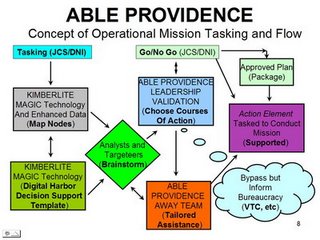Taxation: Cheney Family's $1.9M refund, (Shock!), RAL's
Interesting headline in the Washington Post today trumpeting President Bush's family tax bill: $187,768, on federal adjusted income of $735,180. Seems the Bush's doubled the presidential income (roughly $400K, the article reports) with interest income. More interesting than the Bush bit, though, was the shocking fact that President Cheney and his family are receiving a $1.9M refund, on roughly $8.8M of income. The family donated $6.87M to churches and charities. The article doesn't report my federal refund, which is roughly $300 this year. Celeb-reality, VH1 says. It matters more when you're famous.
I wondered what other large refunds had been reported (anybody?), but got lazy. A simple Google search turned up nothing, so instead, I landed at USA Today, which reported earlier this year that American's overpaid taxes in 2003 and 2004 by 29%, pushing annual refunds to $200B, and in essence providing a loan to the federal government worth $10B annually. "The deficit is a little smaller because of this voluntary tax," says Leonard Burman, co-director of the Tax Policy Center in Washington. True story.
USA Today ran another article on the same day by the same reporter about the tax situation, this one focusing on why American refunds are growing so large. Short story shorter, the form which establishes individual withholding rates (W-4) is too simple to easily accomplish the difficult task of determining withholding rates and the maze of tax credits. The most interesting aspect of this article was the closing paragraph. It, like the article I tabbed above, was a simple quote from Ellen Katz, editor of the Tax Savings newsletter. Same author, same topic, same source, similar quick one-liner exits. Lazy work, Dennis Cauchon, USA Today. Lazy work. (Blogging, anybody?)
Tucked within the Cauchon articles was a bit about "Refund Anticipation Loans" (RAL), which I'd never heard. I decided to learn more, which was embarrassingly easy, the Internet being what the Internet is. An RAL is a pay-day loan only with refunds. They can be viciously expensive, but tax services and loan houses make them available for people who need money yesterday. Jackson-Hewitt Tax Service, for example, treats them like a regular product. I don't look at pawn shops and pay-day loan offices any differently. Putting aside that they both make me a little itchy and uncomfortable, I don't think a well-informed person (or public) would stand for the ridiculous rates of that seedy short-term loan world.
Oddly enough, there's a pilot program in Minneapolis which is offering free RAL's to low-income individuals. As usual with public policy, there's a noble goal. Many of the complexities of our tax system are designed to benefit the poor -- like the Earned Income Credit and its tax credit brethren. However, as taxes get more complex, more low-income people need professional tax help to capitalize. Makes sense. Enter, however, the world of RALs and other fee-based tax advise, and, said Beth Haney, research director for the Childen's Defense Fund Minnesota, "Families potentially walk out of [a tax services office] in more financial trouble." So, public RALs. Of course. Ugh. The article is cached, and therefore funny looking, but it is good. Thanks, Minneapolis Star-Tribune. Thanks, Myron Medcalf.
I did taxes for a few people this tax season, and spent much of my time wondering how and why those tax houses are offering free online e-files. What is their incentive? If you've looked at a few of those services as I have, you'll be struck primarily with their extreme sketchiness. They look like old Angelfire websites, all weird colors, misshapen frames and disjointed formatting. Enter stage left the San Francisco Chronicle, and a story 18 months old. Ah, the repeated process of falling in love with the Internet. Turns out that RAL are a major incentive for these tax houses. Before RALs, however, there is the divide between federal returns (which are free), and state returns (which, in 2005, were typically fee-based). "We believe there are people who will pay $20 for the convenience of not having to input all their information again," says TaxNet founder Tom Allanson. Good gamble, I suppose. Americans often embarrass me. Eh. I'm easily embarrassed.

